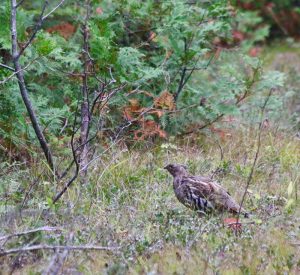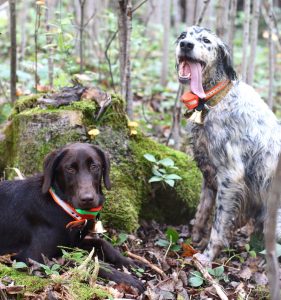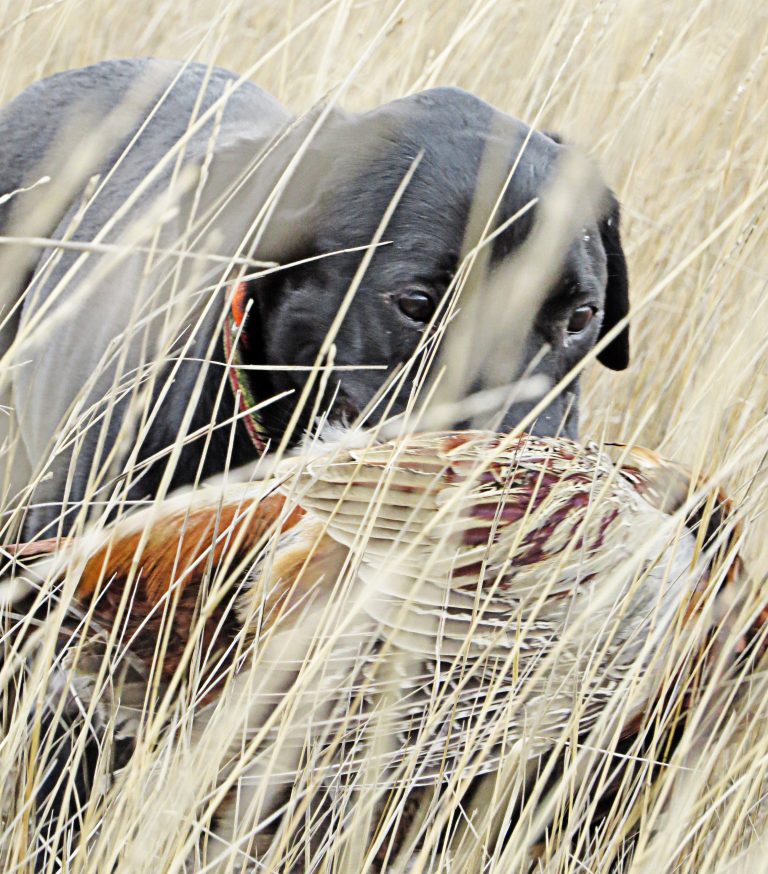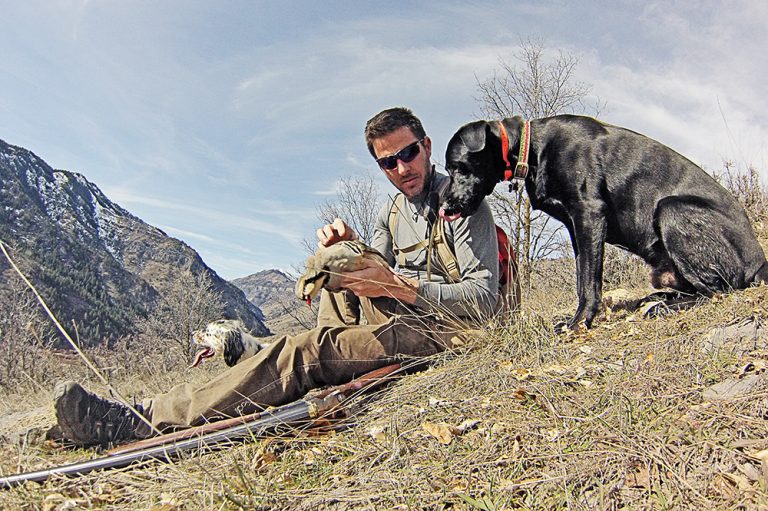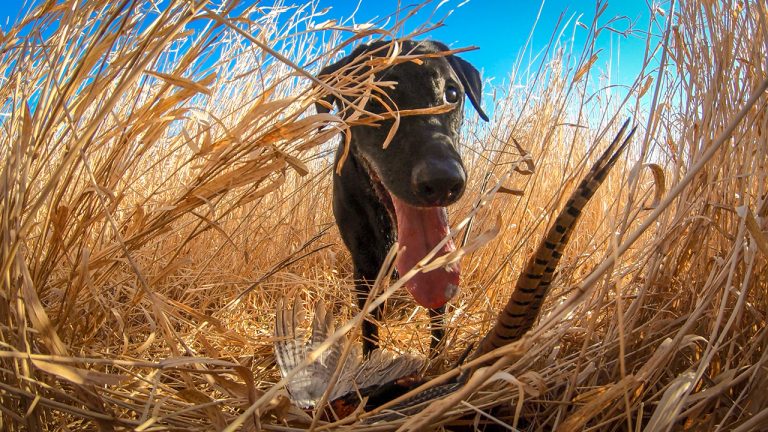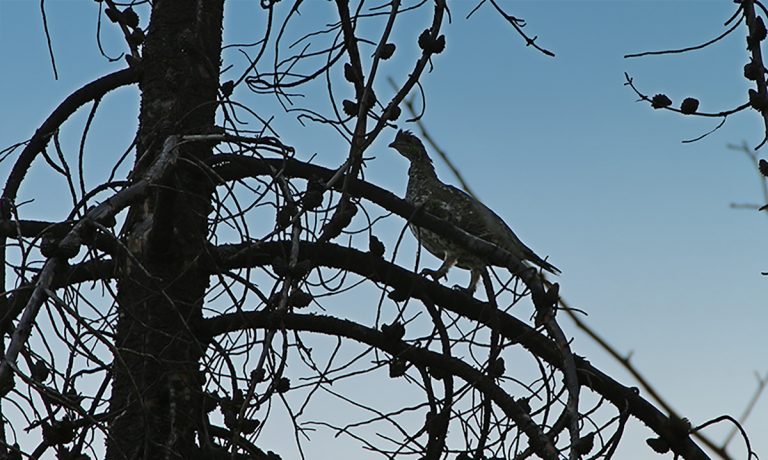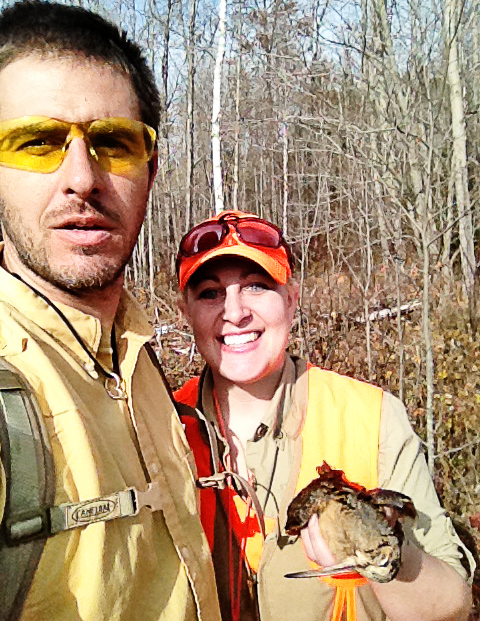Lost……again

“I am lost”
“Going to shoot. Let me know if you can hear it.”
“Hear it?”
“I was 50 yards from the truck.”
It’s my hunting buddy’s first foray into the realm of the Ruffed Grouse. We’ve hunted a few days now, but this is the first overcast day in an area previously unexplored. It is remote, the far reaches of the king’s territory. What my friend doesn’t know is my cell phone is dead in my pocket. Even if it were live, I have no service. His texts are spinning in digital purgatory as he turns laps at the edge of this hellish bog we elected to enter.
I did hear his shot though. I thought, “that lucky bastard took the right route back to the trucks and knocked down a bird.” I assume all single shots to cut feathers, the second barrel is reserved for us less skilled who prefer burning powder to accuracy.
At the time of the shot I was actually directionally challenged as well. The setter had managed to point a woodcock that offered no shot. But it lit her fire and she had no intention of turning towards the exit now. Ida, the lab pup, thought all this might be the best thing she’s ever done in her young life: distant shots, flushing birds, swamps with knee high mud holes.
For me lost has become more of an equation to solve and respect than something to fear. I’ve obviously not done a great job relaying lessons I’ve learned over the years to my disoriented friend. Even though all my technology has failed me, which technology has a nasty habit of doing, and I’ve spun a half-dozen loops around this marsh, I recall the map I looked at just prior to departure. The two-track we entered on runs a fairly straight north-south direction. We walked west into this mess. All I need to do is point toward the east and I will hit that road if I can stay on a heading.
Eventually I convince the dogs there are better places to hunt and we make it back to the truck. We all regroup and have a laugh about how far south that initial plan quickly went. About an hour later after the phone has recharged and we’ve returned to the comforting blanket of cell service, I get those texts.
Many versions of upland hunting cross prairies, mountains and high deserts where landmarks can be identified or departure points are never far beyond a line of sight. But Ruffed Grouse will lead you into the darkness, impenetrable thickets that make navigating straight lines virtually impossible. Picking distinct landmarks becomes challenging when they are swallowed by the forest mere paces behind. On overcast days when the sun can offer no assistance, the grouse woods can quickly become a labyrinth.
It’s taken a number of years to get accustomed to trekking previously unexplored areas. I’ve been lost. Lots. I’ve come to look at the word with less permanence than I once did. It’s not easy to find an area where if you walk far enough that you won’t eventually stumble upon something recognizable, man-made, another human. The trick is to do it before running out of energy, water and good sense.
Coverts are talked about as specific places, ones you can actually walk to, find, maybe even find your way out. It’s a word that always sounds too small to me. I can’t think of a single area where I can walk directly and know there will be a grouse. The fact these areas even exist is absolutely foreign to how I hunt the woods. Maybe that’s simply because I’ve not wandered far enough to find my own coverts or spent enough time in the greasy spoon to befriend enough Old-timers. Maybe I don’t even know what a real covert is; I just kick into a few birds exploring areas outside their clandestine drumming grounds.
These Old-timers (that’s anyone older than you) often talk of cherished coverts; the areas they know to hold birds year-over-year for generations. The loss of coverts to development or land purchase I imagine lamented over coffee in local diners by gentlemen now too hobbled to have visited the covert in years. But it’s still lost, a few years earlier than when it would have been taken to the grave. I wonder if the Old-timers discovered these areas initially or if it was handed down as some priceless inheritance.
I am convinced that a covert can only have one true owner. If a forest feels as though it’s been previously explored then it doesn’t feel right for finding a new grouse nirvana. That’s how the search for coverts often leads us deeper and farther from beaten paths, and closer to being lost.
After a morning of turning circles in a young forest too big to be circled, I drove down to the local rocky beach to sit and soak in salty air and allow the dogs to recover from hours of stump jumping. A minivan pulled into the adjacent space and I looked over to the gaze of a rather hefty Griffon in the back seat, tongue out. I spend some time trying to translate any meaning in her stare, hoping she might share some secret of the local birds that will solve the current riddle. Eventually I notice her human counterparts, an older couple in the front seats with windows down enjoying the same salt air.
Bird dog people are my people. These folks don’t have the outward appearance of hunters, but they do have a dog along for the ride that looks game. Bird dog people who don’t hunt with their dogs is another riddle I am always interested in tackling, so I strike up a conversation with this elderly couple. Charlie and his wife seem surprised of my knowledge of their pointing breed. We talk of the unseasonably warm weather and the prevalence of Leaf Peepers before getting around to my business in the area. It turns out that Charlie does hunt with this wirehair. He interrogates me enough to realize I am rarely a good shot and root often for the birds. He decides that he’d like to show me some of his hunting spots if I’m interested.
The next morning is set to bring cooler weather and I can think of nothing better than following an Old-timer to some of his partridge haunts. I jot down Charlie’s number and ask when he’d like to embark. “Why don’t you call me in the morning and we’ll meet at the coffee shop. We can have a coffee and talk things over.” Invites like this are rare and seem particularly fragile. So I gingerly ask Charlie what time he’ll be up and around because I’m just as likely to call at 4 a.m. if given an opportunity to hunt a new place. “Sometimes I’m up at five, then other days I don’t get up until after seven.” We agree that if I call around 7:30 that should work and we’ll meet for coffee, then head out to find some birds. I thank them, smile and wave as they pull away from the beach.
The next morning I’m up early to get the dogs fed, vehicle reorganized, waters filled and then head to the specified coffee shop. I pull into the parking lot at 7:25 and give Charlie a call. It goes straight to voicemail.
“Morning Charlie, just wanted to let you know I’m at the coffee shop, looking forward to chasing birds. I’ll wait here for your call or see you when you arrive.”
I waited for three hours.
I speculate the remainder of the day how the invite went sideways as I follow the dogs through cascades of leaves. I could have dialed Charlie again. But his coverts are his to will and whatever reason changed his mind is something I can only respect. Maybe he just overslept. And maybe these coverts are one day closer to being lost.
Quick tips on how to avoid the abyss:
When jumping into a new area, regardless of terrain, I like to mark the time of departure. I have a general idea of the path I want to take though it can be affected by the dogs’ will. I normally think of this path roughly as a triangle which helps prevent hunting the same ground twice. I pay attention to how much time I spend on each leg of the triangle. The second leg, no matter the length, running what I believe to be parallel to the starting point. Then I know when I make the turn back towards the truck on the final leg that I should spend close to the same time as the first leg of the triangle to put me near the departure point. Often I get my angles by the position of the sun — being in the northern hemisphere, the sun is always in the southern sky somewhere between southeast and southwest depending on the time of day. If overcast I can often use a prevailing wind direction or I can get a quick heading from a compass.
Your smartphone’s GPS chip should work even when you don’t have cell signal. A little known fact is you can still drop a pin and mark you location in the standard mapping programs even when the map won’t download to your phone. What good is this when you can’t see the map? You are still able to determine your location and approximate distance in relation to that dropped pin even without a cell signal. The blank grid of death actually isn’t as useless as it may seem, so marking a waypoint prior to departure is always sound strategy.
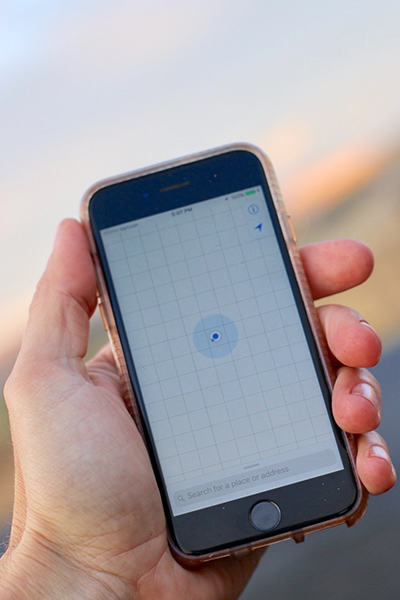
Even better, onX Hunt has done a great job upgrading their App in recent years. You now have the ability to download maps for off-grid use — 5, 10 and 150 mile sections — no cell service required. Depending on what layers you have active onX Hunt can show you public lands, designated hunting lands, state lands, even the names of individual private land owners. It’s an invaluable resource for gaining hunting permission or regaining your position. If you’re in an area where cell signal is sparse, put your phone in airplane mode so the onX App doesn’t struggle with minimal signal trying to download the real-time map. Airplane mode is also a great way to reserve phone battery instead of your phone constantly working to attain signal.
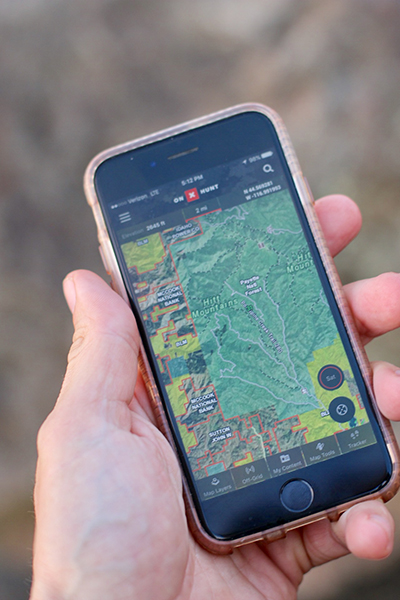
And when I’m in serious backcountry when the threat of injury or mishap is real, I carry my SPOT GEN3. This allows me to send messages via satellite to friends and family relaying my location. And in the event that I’m unable to extract myself and the dogs, I can activate the emergency beacon, hunker down and wait for reinforcements to arrive.

Don’t’ be afraid of unknown places. Just practice your orienteering and be prepared. And though technology is great, always have a backup. A fun way to test your progress when hunting with friends in remote places, everyone pick the direction they believe to be the trucks, then pull up your GPS, phones or mapping program and see who’s closest to correct. The loser buys breakfast.

